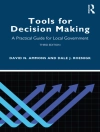Gaston Leval’s study brings together two aspects that are generally difficult to unite – analysis and testimony. He visited the towns and villages of revolutionary Spain where people had opted to live a libertarian communist lifestyle almost without precedent in history, collectivising the land, factories, and social services. Collectives in the Spanish Revolution demonstrates clearly that the working class are perfectly capable of running farms, factories, workshops, and health and public services without bosses or managers dictating to them. It proves that anarchist methods of organising, with decisions made from the bottom up, can work effectively in large-scale industry involving the coordination of many thousands of workers in many hundreds of places of work across numerous cities and towns, as well as broad rural areas. Leval’s history of anarchy in action also gives us an insight into the creative and constructive power of ordinary people. The Spanish working class not only kept production going throughout the war but in many cases managed to achieve increases in output. They improved working conditions and created new techniques and processes in their workplaces. They created, out of nothing, an arms industry without which the war against fascism could not have been fought. The revolution also showed that without the competition bred by capitalism, industry can be run in a much more rational manner. Finally it demonstrated how the organised working class inspired by a great ideal has the power to transform society.
Gaston Leval
Collectives in the Spanish Revolution [PDF ebook]
Collectives in the Spanish Revolution [PDF ebook]
Cumpărați această carte electronică și primiți încă 1 GRATUIT!
Limba Engleză ● Format PDF ● Pagini 416 ● ISBN 9781629635019 ● Traducător Vernon Richards ● Editura Pm Press ● Publicat 2018 ● Descărcabil 3 ori ● Valută EUR ● ID 6429751 ● Protecție împotriva copiilor Adobe DRM
Necesită un cititor de ebook capabil de DRM












